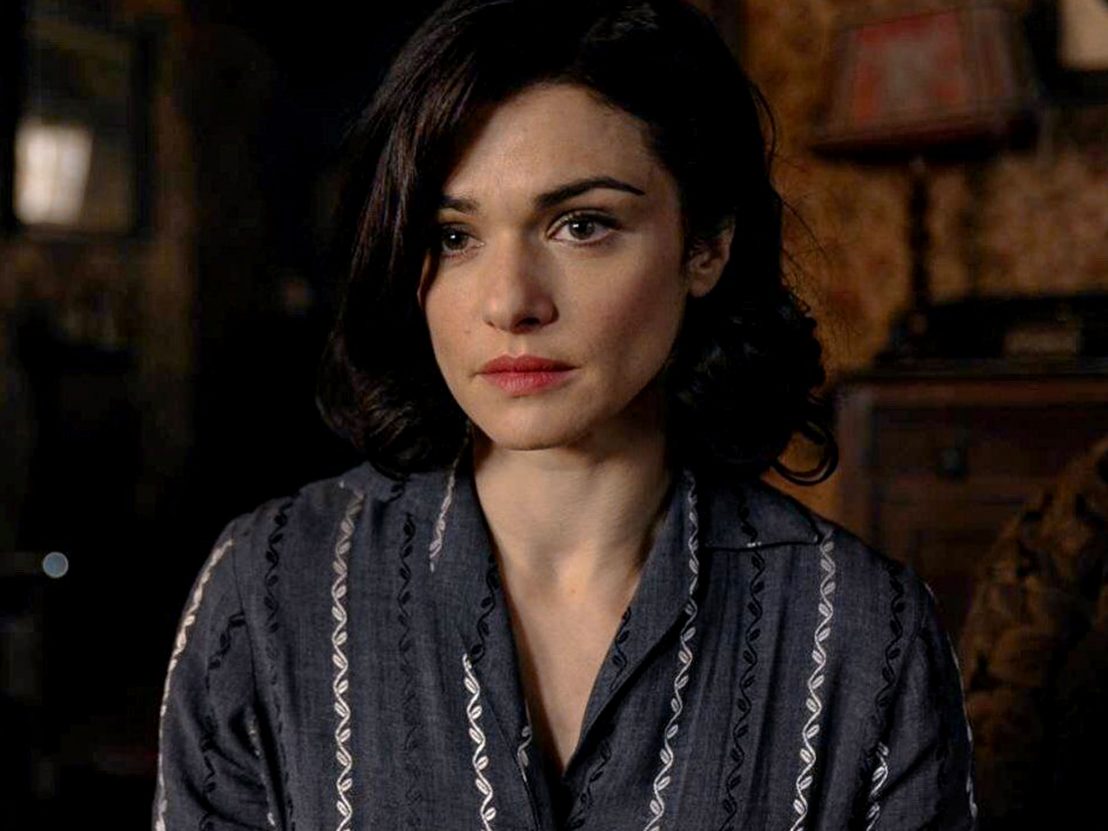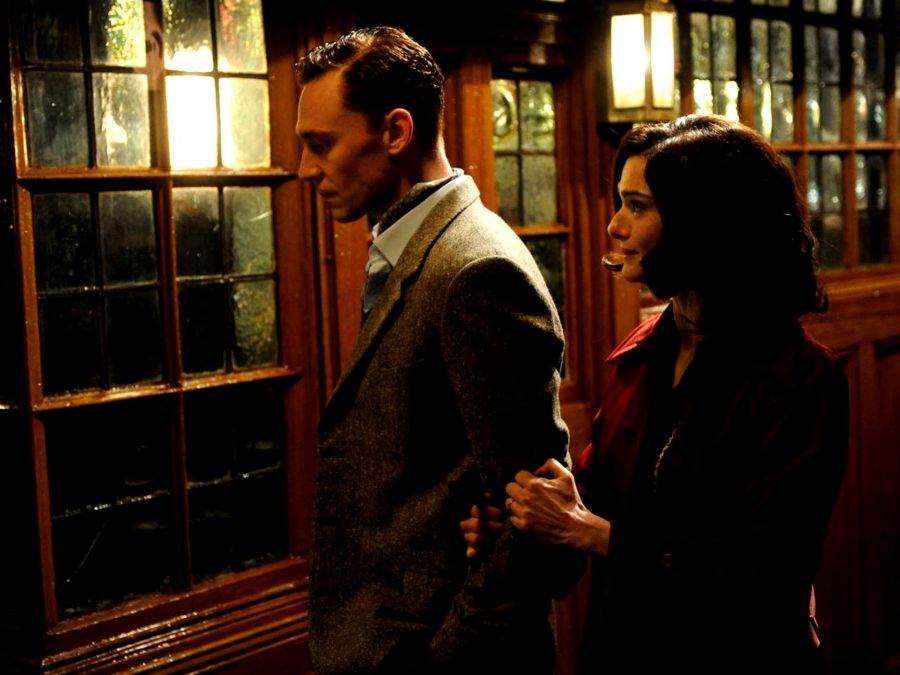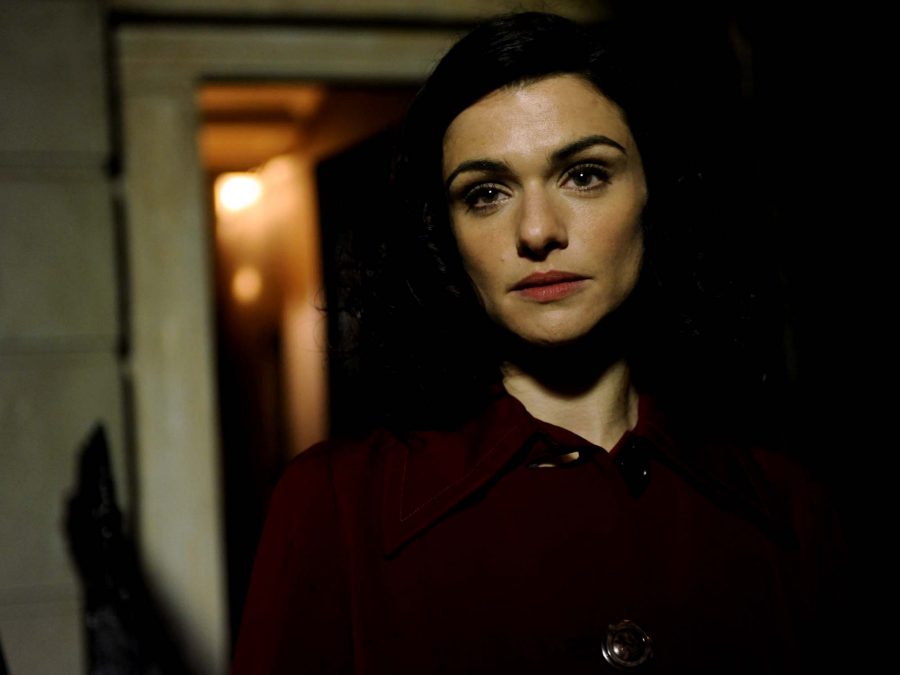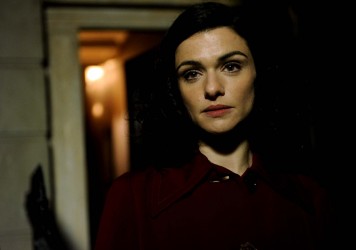
“Beware of passion, Hester, it always leads to something ugly,” says the mother of the man that Hester is cheating on. It’s intended as snide smalltalk, yet this line foreshadows the forces that will toss her daughter-in-law around like a rag doll in a hurricane.
Rachel Weisz summons superhuman dignity to play a 1950s housewife humiliated by desire in Terence Davies’ The Deep Blue Sea. Hester leaves her marriage to kindly High Court judge, Sir William Collyer (Simon Russell Beale), drawn by the promise of sexual passion with a younger, flakier man, Freddie (Tom Hiddleston).
Freddie is a former RAF pilot who is seeking his next adventure after World War Two. The reality of a relationship could never keep his attention. Hester knows this, yet still hurls herself out of her marriage and into freefall. Her jilted, still caring husband questions her logic: “But how, in the name of reason, could you have gone on loving a man who, by your own confession, can give you nothing in return?” She responds: “Oh, but he can give me something in return, and even does, from time to time.” He asks, “What?” She says, “Himself.”
This is the story of a high-stakes sexual awakening. Weisz’s voice drops to a lower pitch when she says the word “himself”, as if accessing an orgasmic sense memory. She is self-possessed at the same time as she is lost. She owns the choice to be with Freddie, even though it seems like a kamikaze move to those, like her mother-in-law, who favour guarded enthusiasm over passion.

The Deep Blue Sea began in 1952 as a play by Terence Rattigan, who coded onto Hester the story of his secret lover of 10 years. Kenny Morgan left Rattigan for a man who mistreated him until Morgan took his own life – an act we see Hester trying and failing at the outset. Rattigan imprinted himself onto Sir William, a reasonable man bewildered by the wrecking ball of sex that smashes through his relationship bubble.
To complete the ping-pong of transference between Hester and gay storytellers named Terence, Davies’ adaptation cleaves to her perspective, empathising with the experience of an emotionally tortured women, as he has done in The House of Mirth and A Quiet Passion. He decided he wanted Weisz for his Hester after turning on the TV one sleepless night and catching her in Beeban Kidron’s period romance Swept from the Sea. What landed was “this wonderful luminosity and wonderful eyes”.
This wonderful luminosity elevates Hester’s choices beyond naivety or self-destructiveness. Those wonderful eyes watch – agog and enraptured – as for the first time in her sheltered life a man that she actually physically wants targets her with seduction. Freddie’s dialogue is cringeworthy but she is ripe for the plucking. We wince over the chasm between his cheap lines and her wholehearted responses. She is instantly and permanently available in the deepest of ways, while he fancies her in a capricious fashion. Turmoil is rendered by the vision of a woman stepping into her desires, which is powerful, yet the catalyst is a man too callow to meaningfully care, which is painful, too painful for her to grasp.
This is a melodrama. Love is the difference between life and death! But it is a distinctly English melodrama, with dialogue expressed in a mode that strains for propriety. “This is a tragedy,” says a distraught Sir William, visiting Hester after her attempted suicide. “It’s hardly Sophocles,” she responds. Weisz’s performance is attuned to the fact that when the material is so emotionally big, the performance can be small. As Freddie begins the process of leaving, she negotiates for scraps of his time without the expected hysterics. She acts out Hester’s demeaning behaviour with a calm resolve.
“I think what interested me about [Hester] was that she really, kind of completely humiliated herself. She has no pride. She doesn’t hold it together.” Weisz told Complex in 2012. “Nowadays, you get over it and your girlfriend takes you out for a drink and says, ‘Come on, move on – there’s plenty more fish in the sea.’”

The sheer abandon of Hester, her total lack of moderation or modulation, is what makes her a character for the ages – a Madame Bovary upon Knightsbridge. She is obsessed but not insane. She has found an erotic appetite and cannot imagine anyone but Freddie ever sating it. The story would not work and her character would not stand up if the audience did not see the bliss he once afforded, and so it comes early, a high watermark that acts as a counterpoint to the suffering that follows.
There are competing versions of The Deep Blue Sea in the culture, most recently a phenomenal stage play at the National Theatre starring the late, great Helen McCrory as Hester with Tom Burke as Freddie. Even hindered by Hiddleston (a wipe-clean fop without Burke’s dirty magnetism) Davies’ film has one enduring scene that nails why passionate fulfilment can seem worth any subsequent ugliness. It arrives during the opening as Hester, clad in a dressing gown all alone in a boarding house, writes Freddie a suicide note. She remembers the early days of their meeting. ‘Adagio for Strings’ by Samuel Barber plays because this moment needs to be operatic.
Davies mostly trades in the language of glances, so the one sex scene has to do a lot. Weisz and Hiddleston are so intertwined that their limbs seem to belong to each other. Their bodies are the same ivory marble, both lean with lines of musculature. The camera spins above them in a rotating bird’s-eye view, as violins scream in pleasure and pain. This union represents the “himself” that Freddie sometimes gives.
Repression makes you so gasping for sexual love that you’ll accept any deal that comes down the chute. But we witness something that Hester doesn’t. The love, desire and passion she has unlocked belong to herself, not himself. Should she live through his loss there will be – and you can take this from Rachel Weisz – plenty more fish in the deep blue sea.
Published 25 Nov 2021

Before she became a bona fide movie star, Olsen announced herself as an actor with fearless instincts in Sean Durkin’s directorial debut.

By Jason Wood
Terence Davies’ wartime tragi-romance is filmmaking of the highest order.

By Adam Scovell
Jacob’s pair of musical characters is one of the great feats of screen acting of the past 30 years.